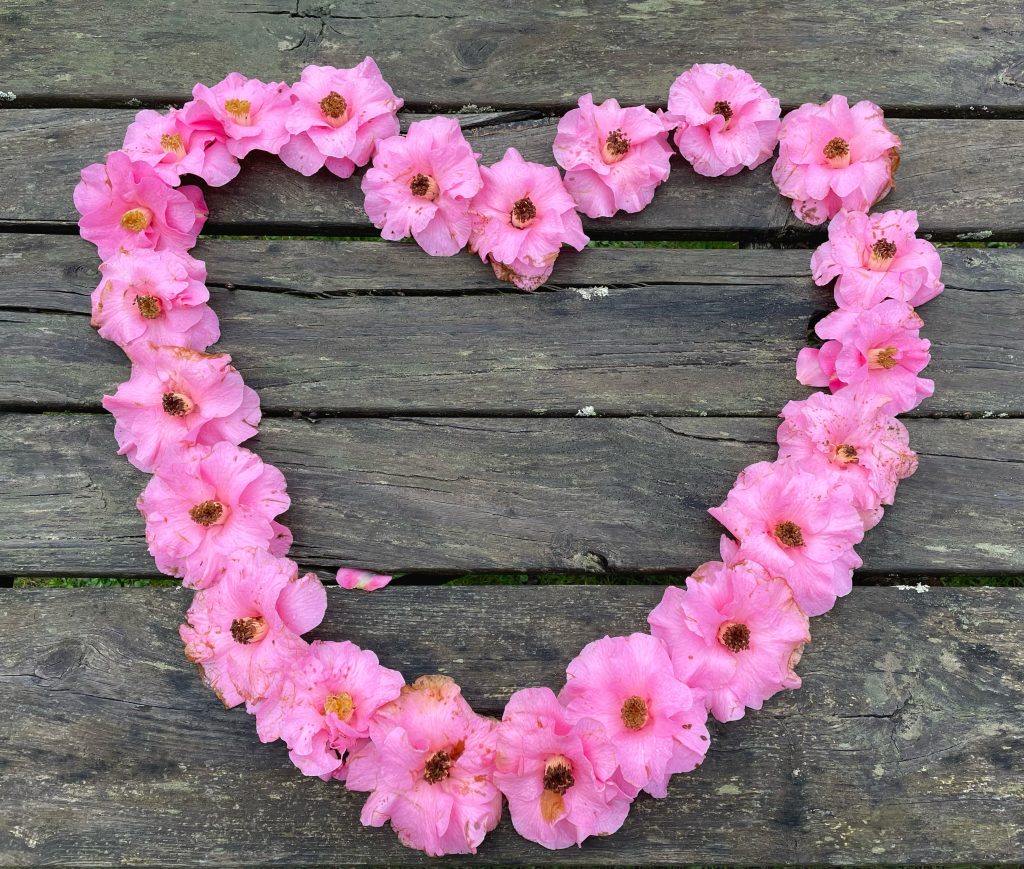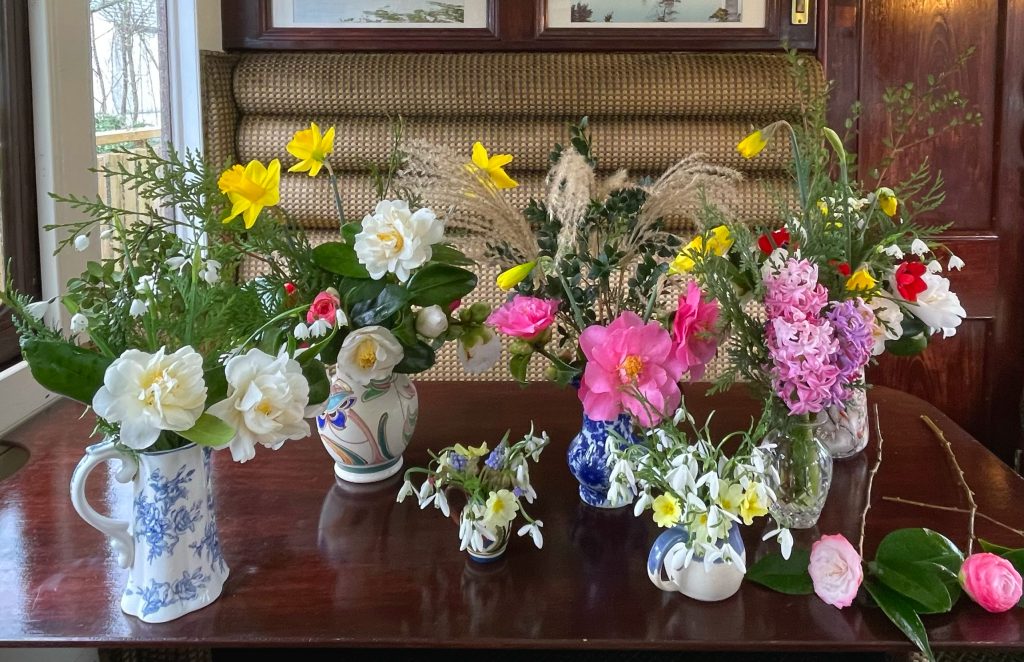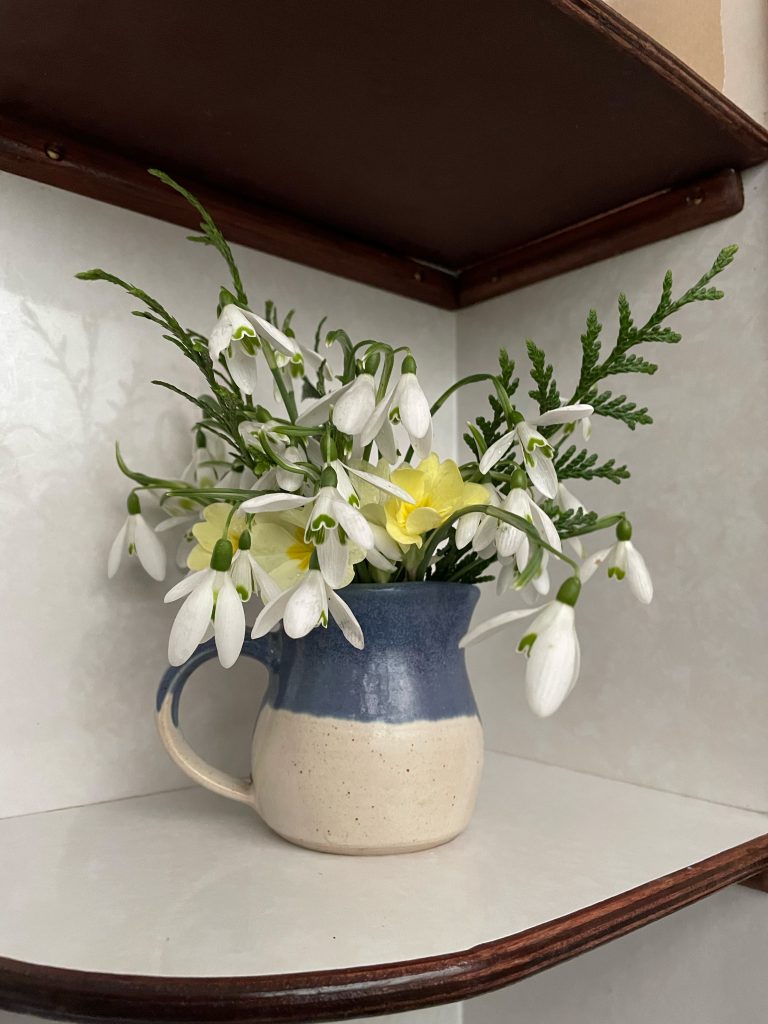
“Say it with flowers” goes the saying, and as today is Valentine’s Day, it seems an appropriate subject to mull over.
We spend a lot on flowers. A quick scan of the internet suggests the spending on cut flowers nudges the one billion pound mark, with 86% of those flowers coming from abroad.
A carbon cost
Flowers are often grown in energy intensive hothouses. They are then air-freighted to keep them fresh, increasing their carbon footprint. Once here, they are usually packaged in non-biodegradable plastic. They are then stored in refrigeration units, again costing more carbon.
Flowers grown in the UK may be one step better, but the majority are again grown in giant energy-hungry greenhouses. The cultivation of bulbs such as daffodils can cause massive damage to the soil; lazy cultivation practice often leads to furrows channeling top soil off the fields and into rivers. Chemicals are used to keep flowers pest and disease free.
Because flowers have a short shelf life, many will end their days in a skip. Waste is a big issue with any kind of perishable goods, and flowers are no exception.
I love flowers, but I have to confess that even without the environmental considerations I find shop-bought flowers boring. They often have very little scent and all look the same. I can’t see the point of roses that don’t smell; to me flowers have to offer the full sensory package.

If you wish to have cut flowers, then growing your own can be very pleasurable. It is possible to manage a garden to have flowering blooms all year round. At this time of year we have snowdrops, early narcissi, camellias, winter flowering jasmine, witch hazel, viburnums, daphne, primroses, wallflowers, hyacinths and hellebores. They give pleasure twice; in the garden and in vases, and provide early sustenance for pollinators. I find planting a variety of daffodils, hyacinths, tulips and narcissi in pots works quite well, as the bulbs can stored over summer, and the pots then used for drought tolerant pelargoniums.
Charity shop vases
We put flowers in our holiday accommodation, so sometimes I need to find enough in the garden for twelve vases, twice a week. I have found that having a large variety of charity shop sourced receptacles means that I have flexibility, so if the flowers are mainly small (eg. snowdrops, primroses and pulmonaria) or large (camellias, sprays of viburnum, myrtle) I have vases that fit. Gifting a vase with your flowers offers added value; vases are never hard to find second-hand, and your purchase may benefit a charity too, so a win-win all round.
Go green
At this time of year greenery makes a good base for flower arrangements; rosemary, osmanthus, variegated euonymous, pittisporum, myrtle, ivy and viburnums all work well. They also have the advantage of staying fresh-looking for weeks. If you can, grow some in your hedge; they will then be useful all year round, in vases and as shelter for wildlife.
If you don’t have the ability to grow your own, consider gifting a plant so the recipient of your affection can have pleasure for years to come. I really enjoy looking around our garden and thinking of the origin of our plants. My lovely mother-in-law died several years ago, but I am always reminded of her when the azalea she gave me twenty years ago comes into bloom.

There are a number of local flower producers who do garden in an eco-friendly way, so it is worth seeking them out. Polbathic Flower Farm is one local to us, but there are many other micro-growing industries doing good work within communities who will appreciate our trade. Buying flowers from source also means they are much fresher than those in the shop.
No plastic please
If you are laying flowers on graves or other public places, please remove the plastic; it lasts long after the blooms have faded and becomes unsightly litter. If you are laying flowers, wrapping them in moistened moss will keep them fresh.
Alternative ways to show your love
Sometimes we buy things because we want the person we love to know we have spent money on them. However spending time on someone is far more meaningful than simply opening a wallet. If you don’t have flowers you can pick from your garden, then offer a drawing, write a terrible poem, (or a good one if you have the talent), gift an experience you can do together. There are lots of ways of demonstrating love, but supporting a multi-million pound, environmentally damaging industry doesn’t need to be one of them.

A wonderful inspiring blog Lizzy – thank you!
Thank you Keith, that’s very kind of you to comment. Really pleased you like it.